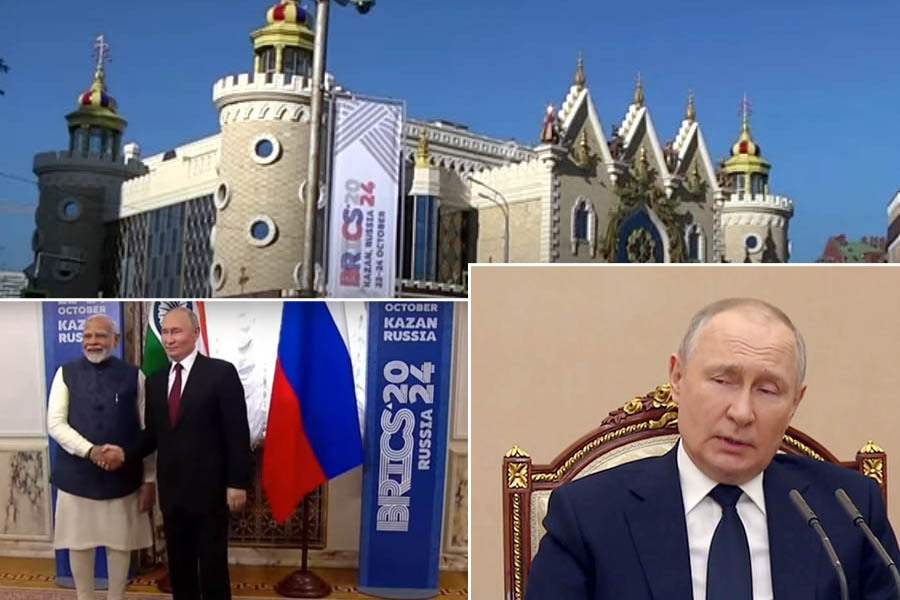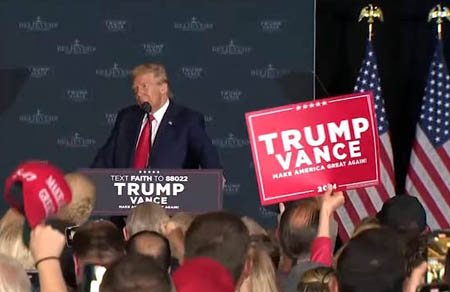
A Look at the Russia Kazan BRICS Summit: Strengthening Alliances and Financial Alternatives
25-Oct-2024The recent BRICS summit held in Kazan, Russia, marked a pivotal moment in the coalition’s ongoing efforts to reshape the global financial landscape and challenge Western dominance. With leaders from Brazil, Russia, India, China, South Africa, and newly added members like Egypt, Ethiopia, Iran, and the UAE in attendance, the summit showcased a collective ambition to develop alternative financial systems and strengthen political alliances amidst increasing geopolitical tensions.
The Evolution of BRICS
Originally established in 2009 to foster economic cooperation among its members, BRICS has transformed from a mere platform for foreign investment into a formidable political entity challenging Western institutions. This evolution is particularly significant given the ongoing geopolitical shifts driven by conflicts such as the war in Ukraine and the changing economic dynamics in the West. With approximately 45% of the global population and nearly 37% of the world economy, BRICS is positioning itself as a viable alternative to the Western-led world order.
The summit's strategic location in Central Russia underscored President Vladimir Putin’s intention to solidify alliances with major economies, especially China and India, while projecting strength and resilience against Western sanctions. This was particularly critical after Russia faced isolation from international financial systems following its invasion of Ukraine in 2022.
Introducing BRICS Pay
A central theme of the summit was the introduction of BRICS Pay, a proposed decentralized payment system designed to facilitate cross-border transactions using local currencies. By bypassing the US dollar and traditional platforms like SWIFT, BRICS Pay aims to empower member nations to conduct trade without relying on Western financial institutions. This initiative aligns with Russia’s broader strategy to reduce dependency on the dollar, which has historically served as a tool of US influence in global finance.
The need for such a system has become increasingly apparent as sanctions have restricted Russia's access to conventional banking networks. With BRICS nations advocating for a multipolar financial order, the system seeks to provide faster, cheaper payment options, ultimately promoting economic cooperation among member states.
Geopolitical Implications
The summit’s discussions extended beyond financial mechanisms, touching on broader geopolitical issues, including a proposed peace plan for Ukraine, backed by China and Brazil. However, the plan has faced skepticism from Ukraine, reflecting the complexities and tensions surrounding the ongoing conflict. The gathering of leaders, including Xi Jinping and Indian Prime Minister Narendra Modi, signals a concerted effort to unify against Western pressure while addressing regional conflicts.
Putin's agenda at the summit also aimed to highlight the resilience of Russia's global standing despite isolation efforts from the West. By hosting over 20 heads of state and showcasing significant support from countries traditionally aligned with Russia, the summit served to counter narratives of isolation and demonstrate that Western sanctions are failing to deter the BRICS coalition.
Challenges Ahead
Despite the ambitious goals set forth at the summit, BRICS faces considerable challenges in establishing itself as a credible alternative to Western financial systems. The group must navigate historical rivalries and diverse political agendas among its members, such as the ongoing tensions between India and China. Additionally, while the anti-Western sentiment fuels unity, countries like India remain cautious about fully severing ties with Western powers.
Jim O’Neill, who coined the BRICS acronym, points out the improbability of achieving substantial agreements among such a disparate coalition. The task for Putin and other BRICS leaders will be to project unity and collective purpose while addressing the underlying fractures that threaten to undermine their aspirations.
A Vision for the Future
As BRICS moves forward, the summit in Kazan symbolizes a significant step towards creating a new economic order that prioritizes cooperation among developing nations. The proposed BRICS Bridge system, aimed at facilitating digital transactions, reflects a growing consensus among member states that current global payment systems are too vulnerable and costly. The ongoing push for alternatives to the dollar could potentially reshape the landscape of international finance, leading to a multipolar currency system where various local currencies gain prominence.
In the wake of the Kazan summit, BRICS stands at a crossroads. With next year’s summit slated for Brazil and ongoing discussions about expanding membership further, the coalition is set to amplify its influence and challenge the established norms of global finance. As the geopolitical landscape continues to evolve, BRICS could emerge as a formidable player, advocating for a new world order that reflects the interests of its diverse membership. The implications of this shift will resonate globally, signaling the unraveling of the Western economic order and the rise of alternative power dynamics.
Q&A Section
Q: What was the outcome of the Kazan declaration?
A: The Kazan declaration reiterated the group's commitment to multi-polarity and emphasized the need for a unified stance against Western interventions, though it did not provide the international backing Russia sought for its military actions.
Q: What aspirations did Indonesia express at the summit?
A: Indonesia expressed a desire to join BRICS, indicating its interest in aligning with the coalition’s objectives.
Q: How did Vietnam’s Prime Minister engage with BRICS during the summit?
A: Vietnamese Prime Minister Chinh expressed Vietnam's intention to work closely with BRICS nations, highlighting the bloc's importance in international affairs.
Q: Did any new members join BRICS during this summit?
A: Yes, this summit included discussions on the inclusion of new members, although specific additions were not detailed in the immediate aftermath. A total of 36 countries were represented at the summit.
Q: What was the main focus of the BRICS summit held in Kazan?
A: The main focus was on de-dollarization and building a world order that reduces reliance on the US dollar among member countries. By bypassing the US dollar and traditional platforms like SWIFT, BRICS Pay aims to empower member nations to conduct trade without relying on Western financial institutions.
The recent BRICS summit held in Kazan, Russia, from October 22 to 24, marked a significant event in the global political landscape. Leaders from 36 countries convened to discuss crucial issues, primarily focusing on de-dollarization and strategies to reduce dependency on the US dollar. Russian President Vladimir Putin used the platform to challenge the Western-dominated global order, urging member states to strengthen their economic and political ties to establish a more balanced international system. The summit's Kazan declaration emphasized the importance of multi-polarity while also addressing the complexities of current geopolitical tensions.
Among the notable outcomes, President Xi Jinping of China pledged deeper cooperation with Iran, underscoring the significance of collaboration amid Middle Eastern conflicts. Vietnam's Prime Minister Chinh expressed a desire for closer ties with BRICS, while Indonesia officially voiced its aspiration to join the coalition. Despite these discussions, analysts questioned the summit's overall success in providing the international support Russia seeks for its ongoing military endeavors. The summit highlighted a pivotal moment for BRICS as it navigates its role in an increasingly polarized world.
Connect with the 16th BRICS Summit in Kazan, Russia!
Get the latest updates on the 16th BRICS Summit in Kazan, Russia, scheduled for 2024. Discover which countries will play a crucial role in shaping global dynamics and fostering economic cooperation. Visit the 16th BRICS Summit 2024 for the full agenda, important insights, and coverage of this transformative event.
Tags: #BRICS #KazanSummit #GlobalPolitics #EmergingEconomies #EconomicCooperation #FinancialAlternatives #InternationalRelations #USDollar #GlobalTrade #BRICSAlliance #BRICSMembers #China #India #Russia #Brazil #SouthAfrica #DeDollarization #EconomicDiplomacy #TechInnovation #SustainableDevelopment #GlobalSouth #ForeignPolicy
Thank you for reading: Globalpostheadline.com





